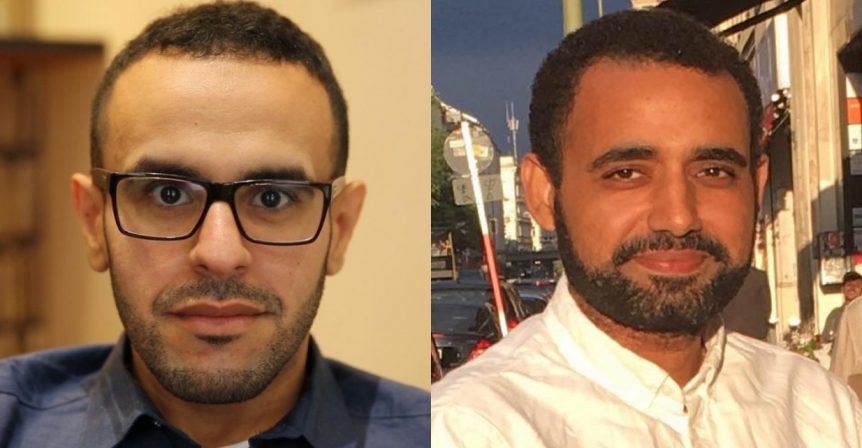The undersigned Egyptian rights organizations are appalled by the raids on the family homes of academic and researcher Taqadum Al-Khatib and human rights defender Mohamed Soltan; clear acts of reprisal by the Egyptian government in retaliation for the two men’s human rights work.The undersigned organizations urge the Egyptian government to immediately end these reprisals, and further call on the Office of the United Nations High Commissioner for Human Rights (OHCHR) to urgently issue a statement in this regard.
On Sunday, 14 February, a national security force raided the family home of Mohamed Soltan and arrested one of his cousins. Until now, the whereabouts, detention status and condition of Soltan’s cousin remain unknown.
A few days earlier, on February 10, a national security force raided the home of Taqadum Al-Khatib’s family in Luxor and questioned his parents about his place of residence, work, finances, communications, and the purpose of his stay in Germany. An officer then took photos of his parents’ IDs and confiscated a mobile phone along with documents and photographs belonging to the family, including property contracts. The raid is believed to be in reprisal for Taqadum Al-Khatib’s human rights work, following a testimony he recently published revealing details about the behind-the-scenes political turmoil of Egypt’s January 25th revolution in 2011. He commented on the role of the Supreme Council of Armed Forces (SCAF) during this transitional period.
This is the second time an act of reprisal has been committed by the Egyptian government authorities against Al-Khatib. In 2017, his scholarship was annulled and he received threats from the Egyptian embassy in Berlin after he uncovered documents in Berlin libraries proving Egypt’s sovereignty over the islands of Tiran and Sanafir.
Similar to its sustained harassment of Taqadum Al-Khatib and his family, it is not the first time that the Egyptian government has harassed and intimidated Mohamed Soltan and his family. On June 15, 2020, security forces arrested and forcibly disappeared five of Soltan’s cousins, whom are in their early twenties, for two days.This attempt to frighten Soltan’s family was clearly intended to dissuade Soltan from pursuing a lawsuit he filed in the United States against former Egyptian Prime Minister Hazem el-Beblawi.
Acts of reprisals have become an increasingly common practice of the Egyptian government as it seeks to retaliate against activists, human rights defenders, and journalists in Egypt and in the diaspora. Like many other peaceful activists, Sanaa Seif and Alaa Abdel-Fattah remain behind bars on the basis of absurd charges while their family endures constant harassment and intimidation by the Egyptian government. Human rights defenders and organizations have continued to routinely report and document reprisals against defenders and their families. In 2018, the UN special rapporteurs Leilani Farha and Michel Forst voiced concern over the government’s reprisals against Egyptian human rights defenders, identifying the practice as a “worrying pattern against individuals and communities.”
The undersigned organizations hold the Egyptian government accountable for the safety and physical integrity of the detainees belonging to the families of Taqadum Al-Khatib and Mohamed Soltan. The organizations further urge the government to refrain from these acts of reprisal, and release all human rights defenders imprisoned for their peaceful human rights work.
Signatories:
- Arab center for law and society studies.
- Committee For Justice.
- Andalus Institute For Tolerance and anti-violence studies.
- Freedom Initiative.
- Franco-Egyptian initiative for rights and freedoms.
- Egyptian Front for Human Rights.
- Cairo Institute for Human Rights Studies (CIHRS).
- Egyptian Forum for Human Rights.
Share this Post

